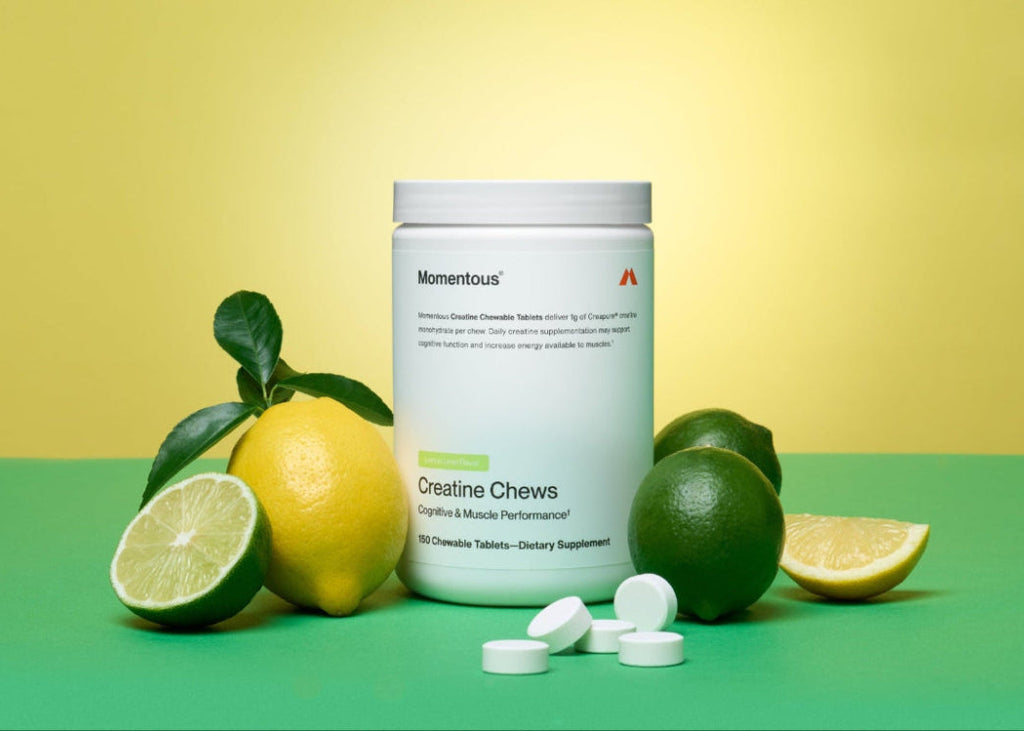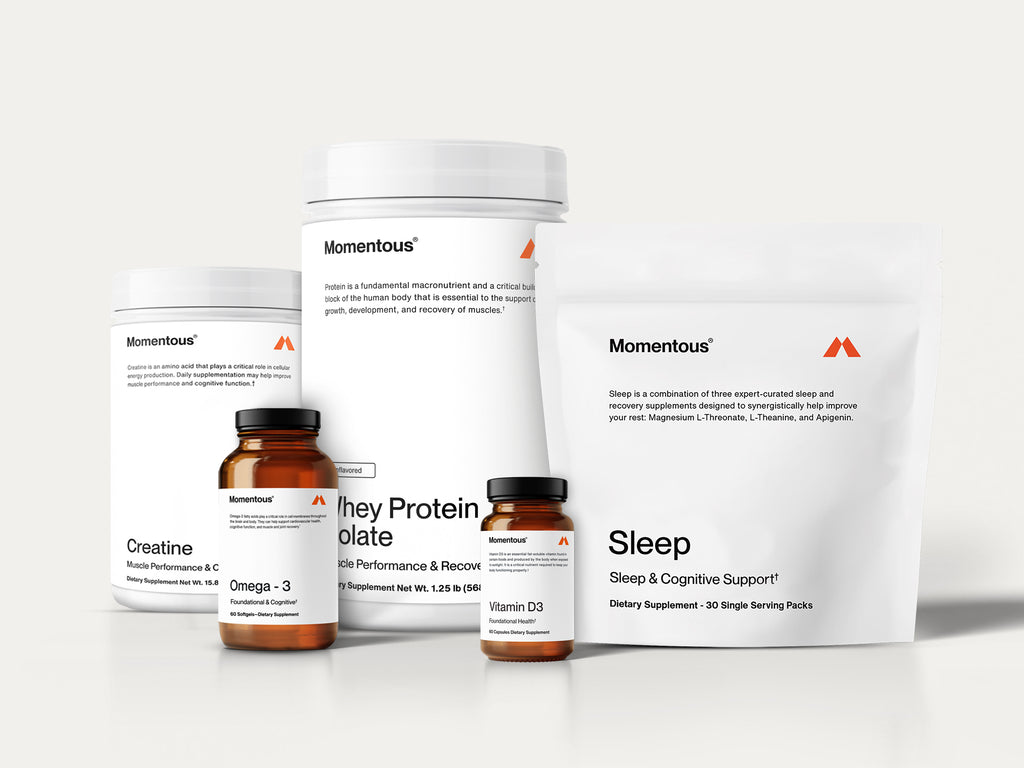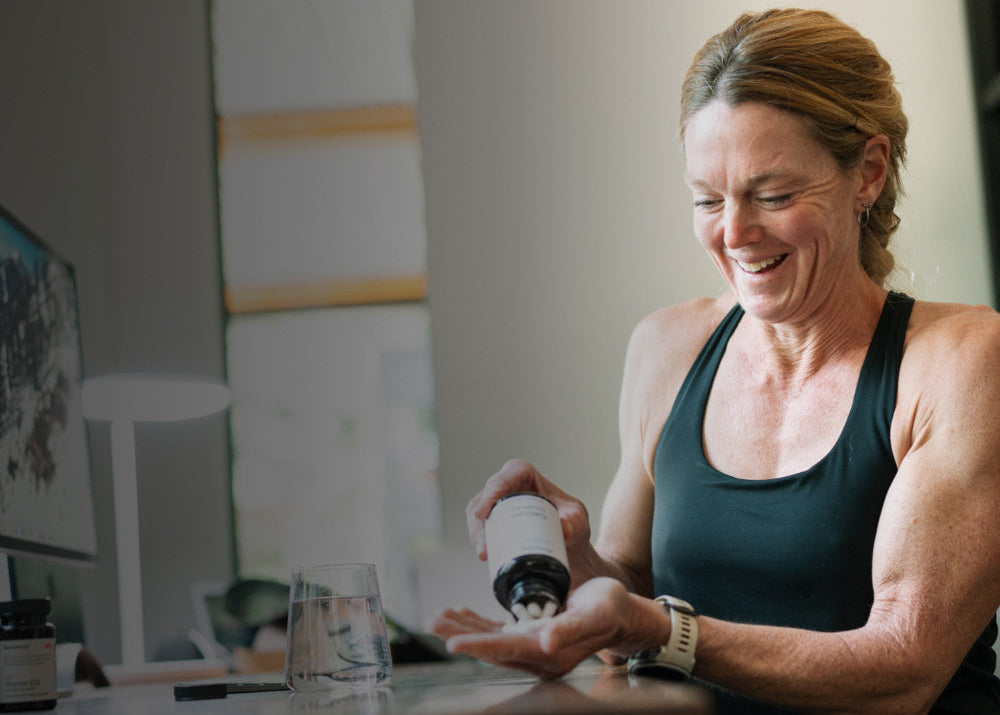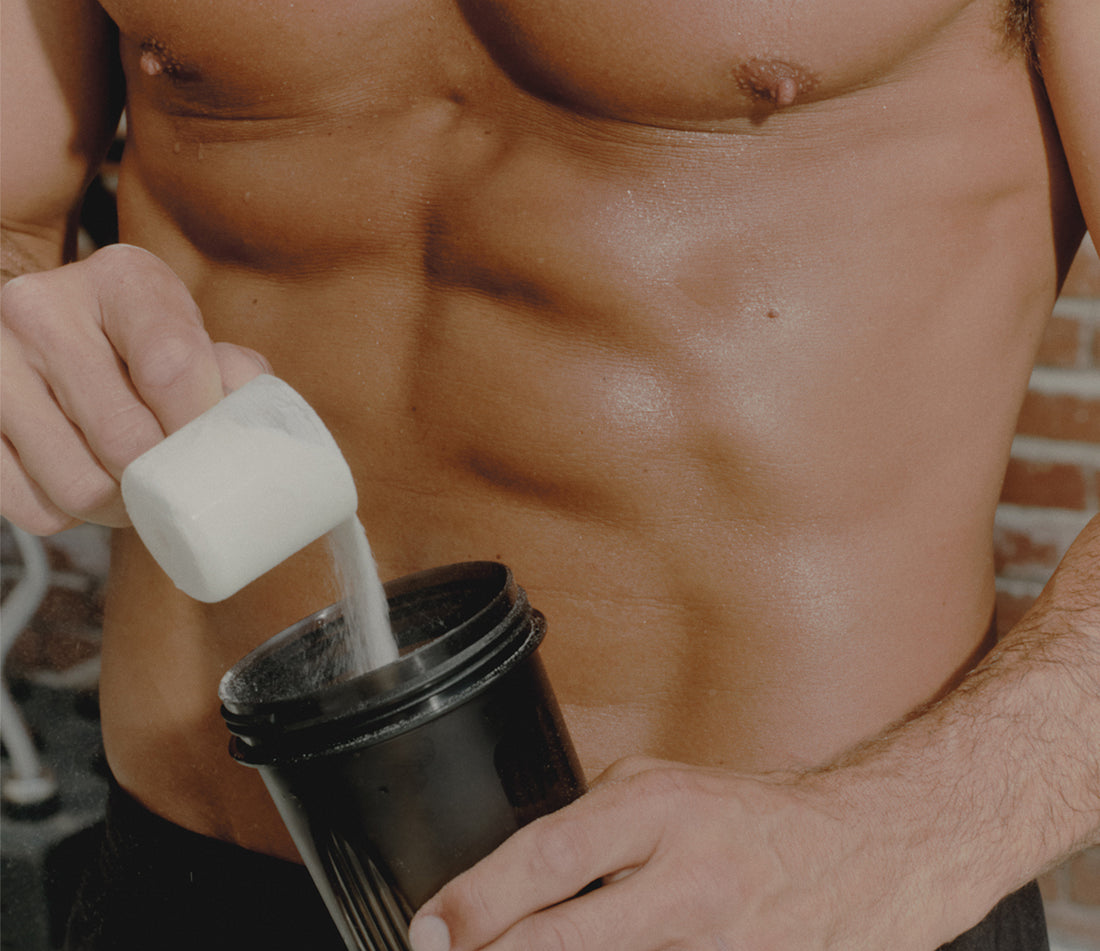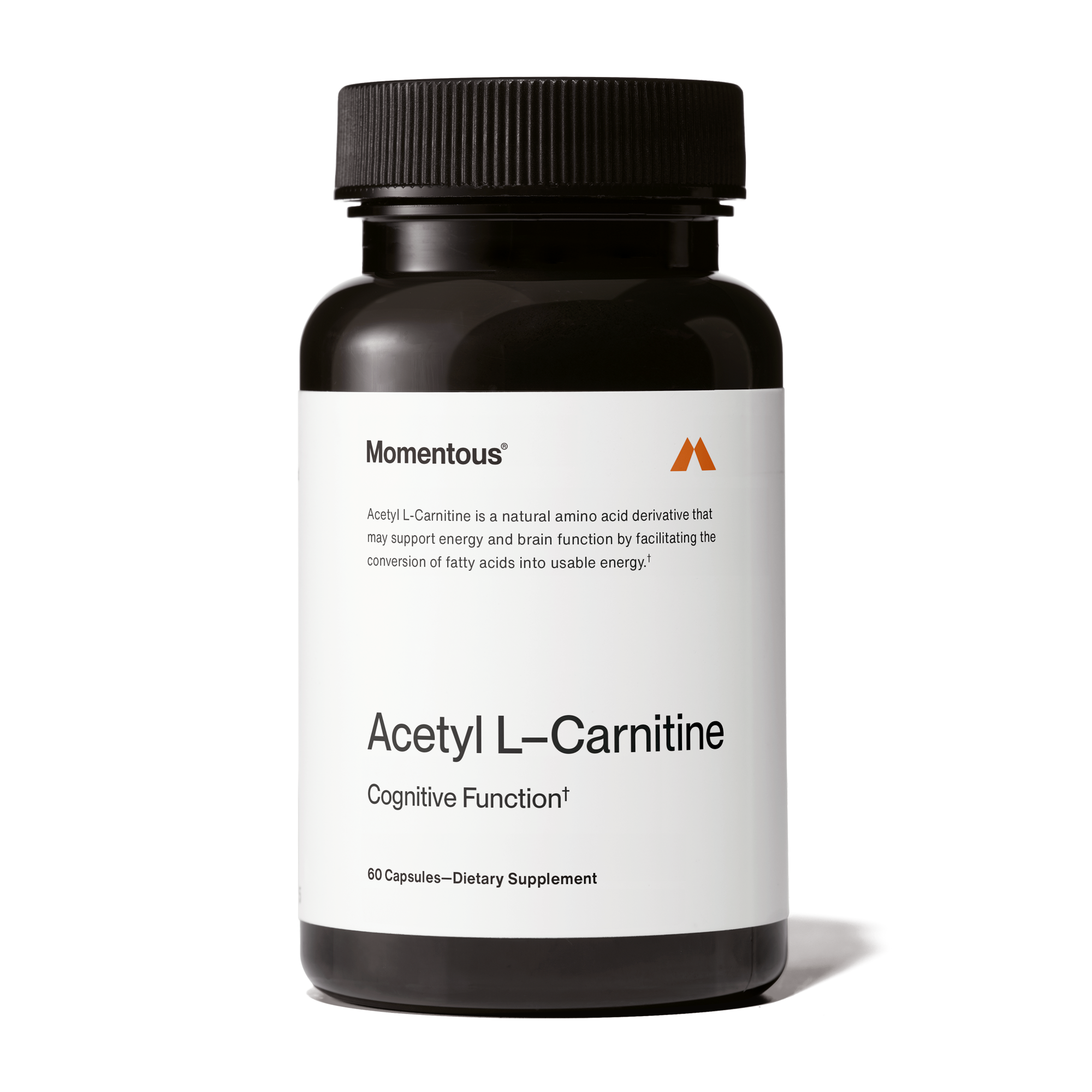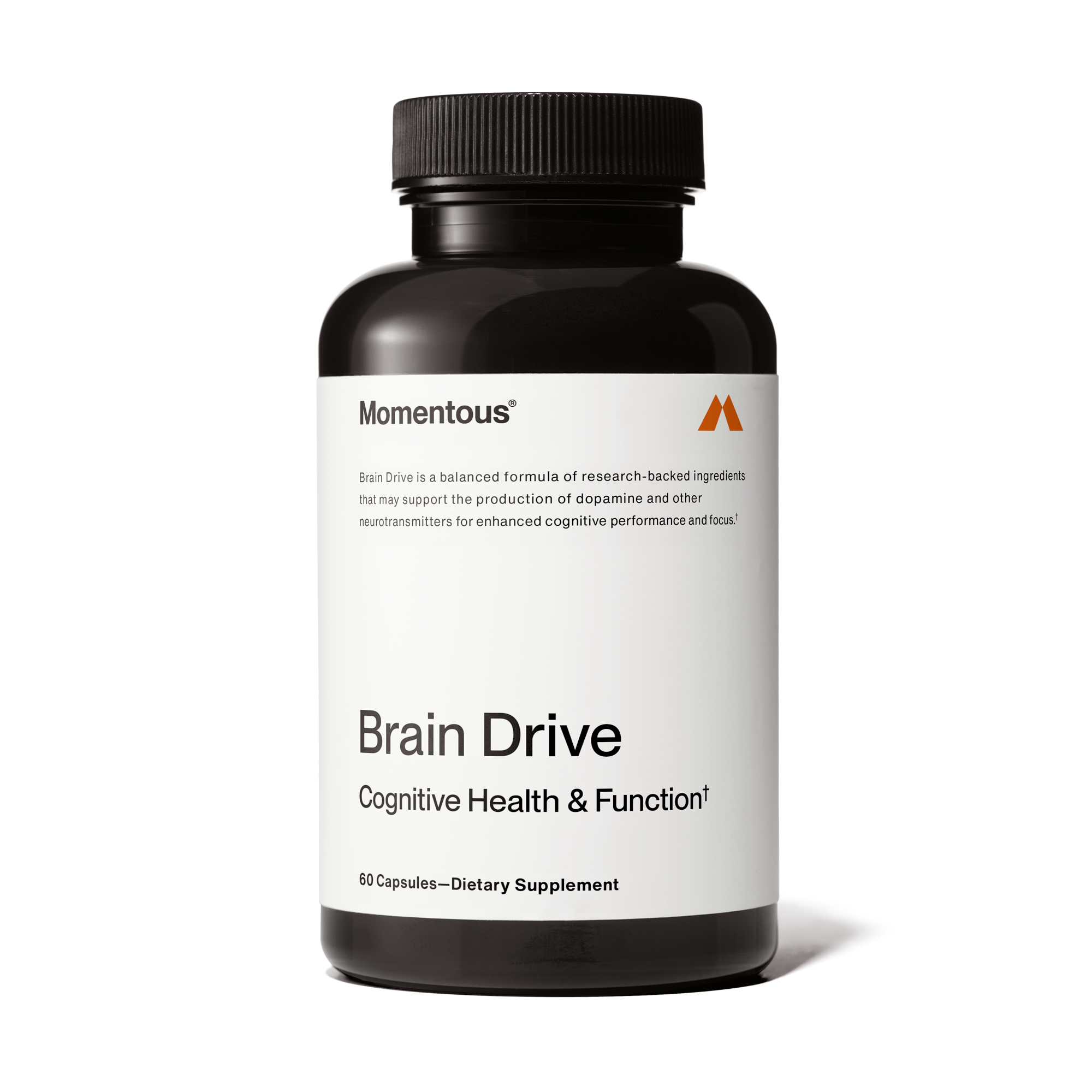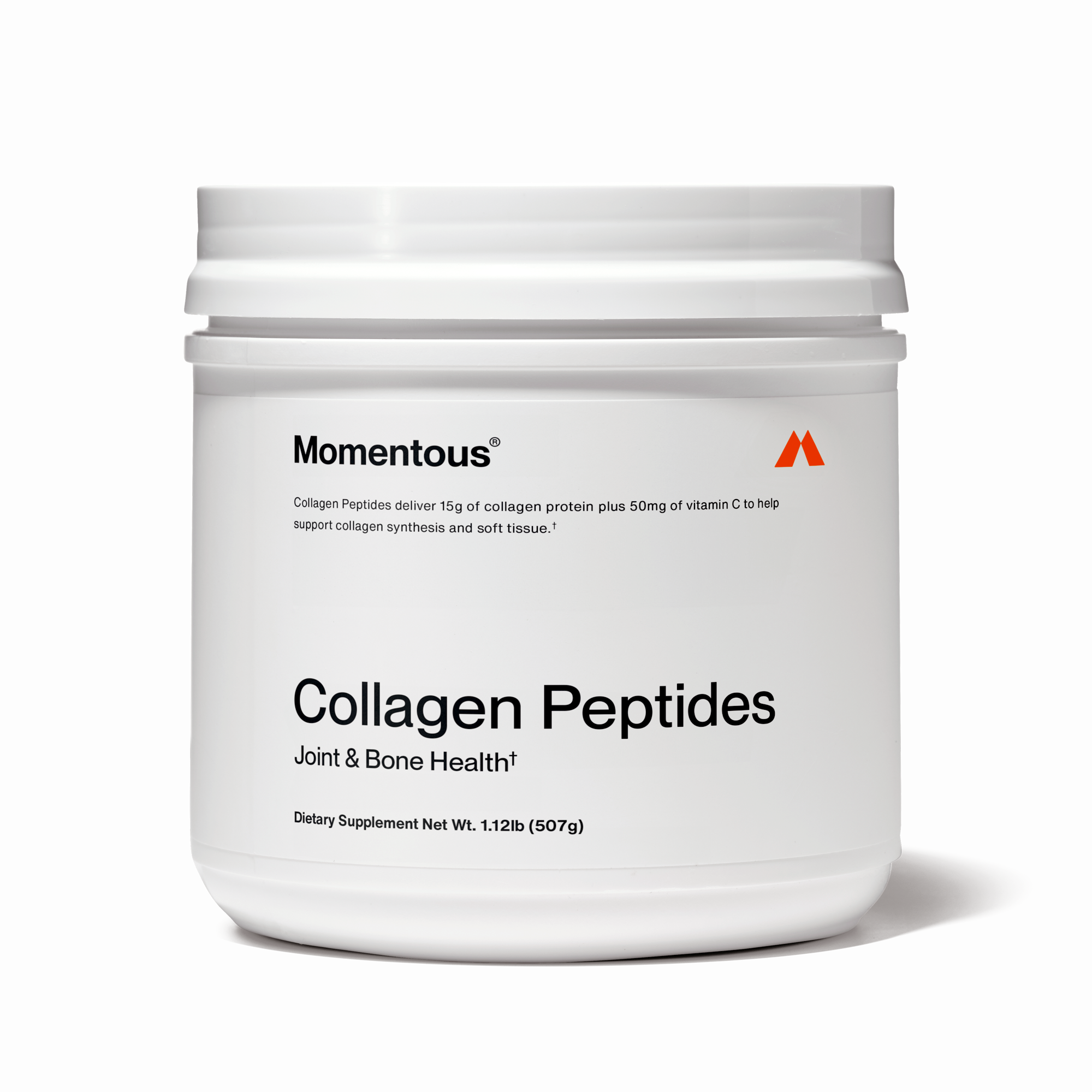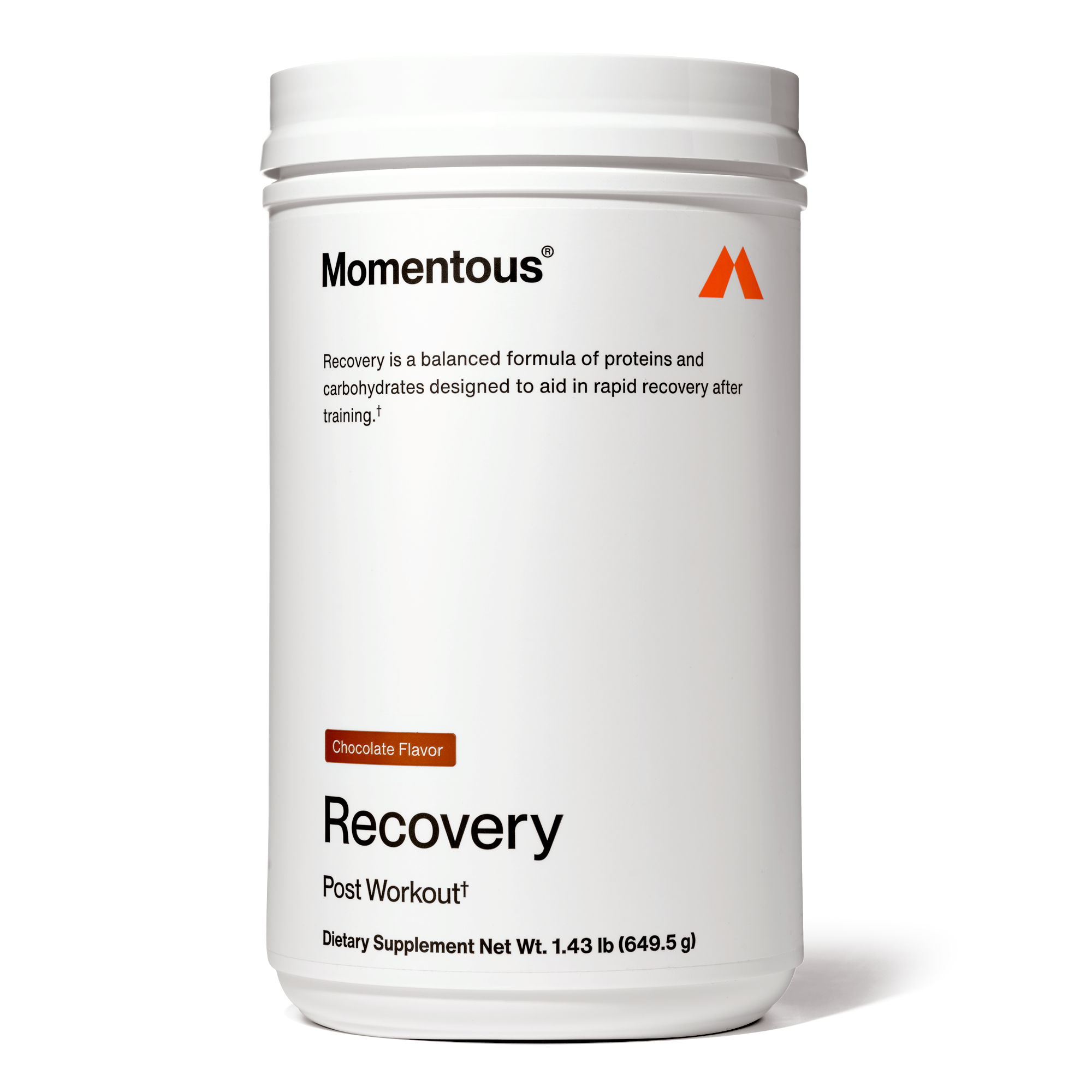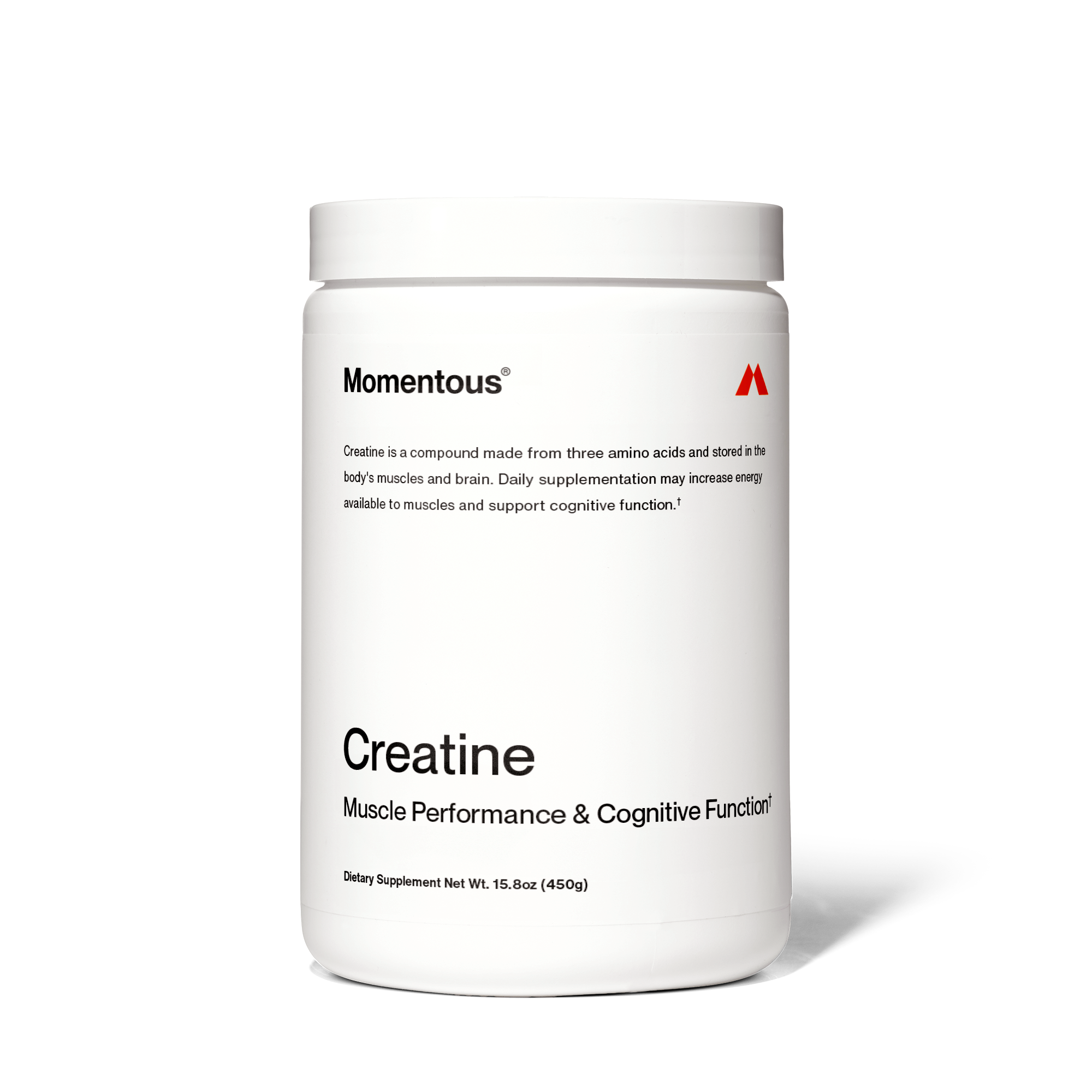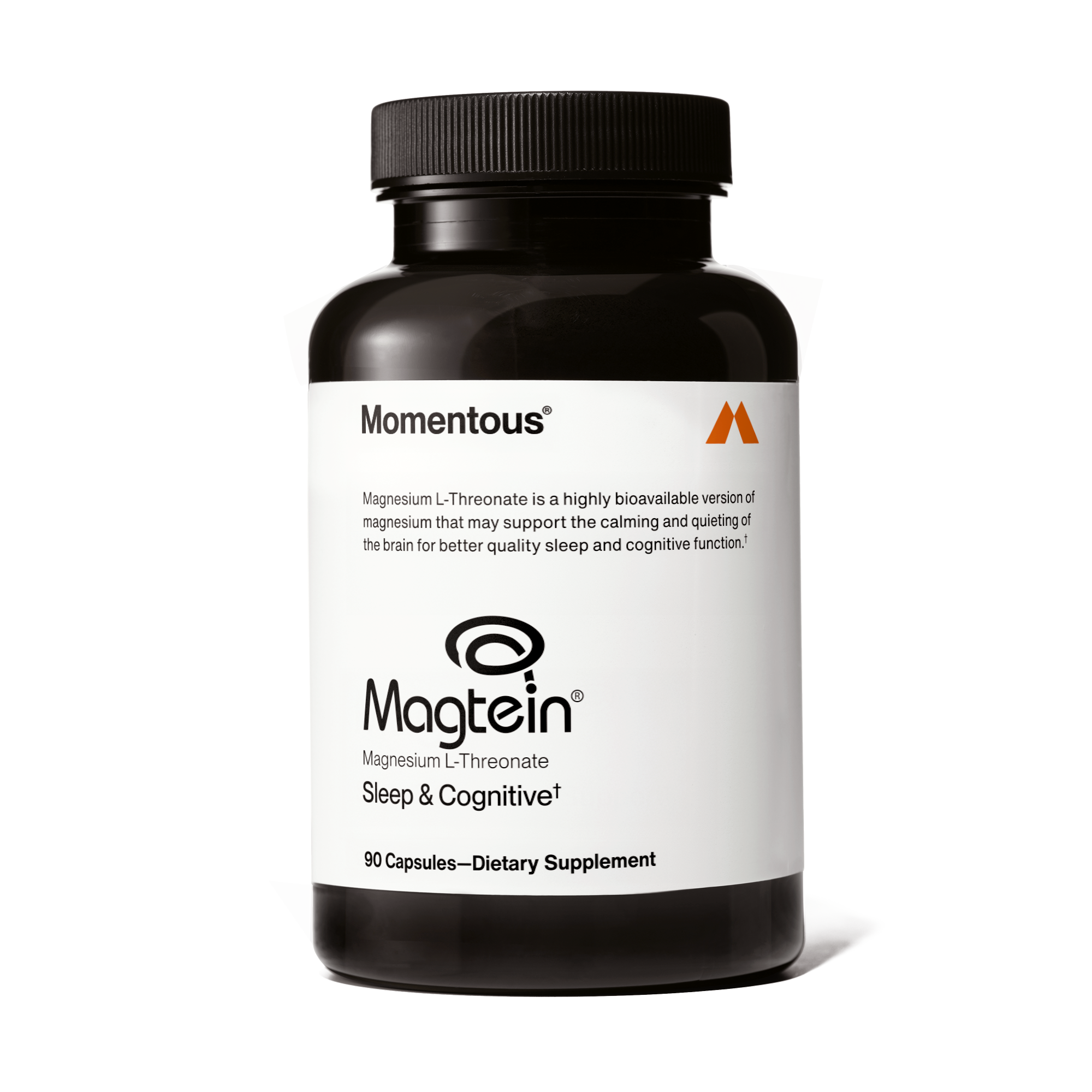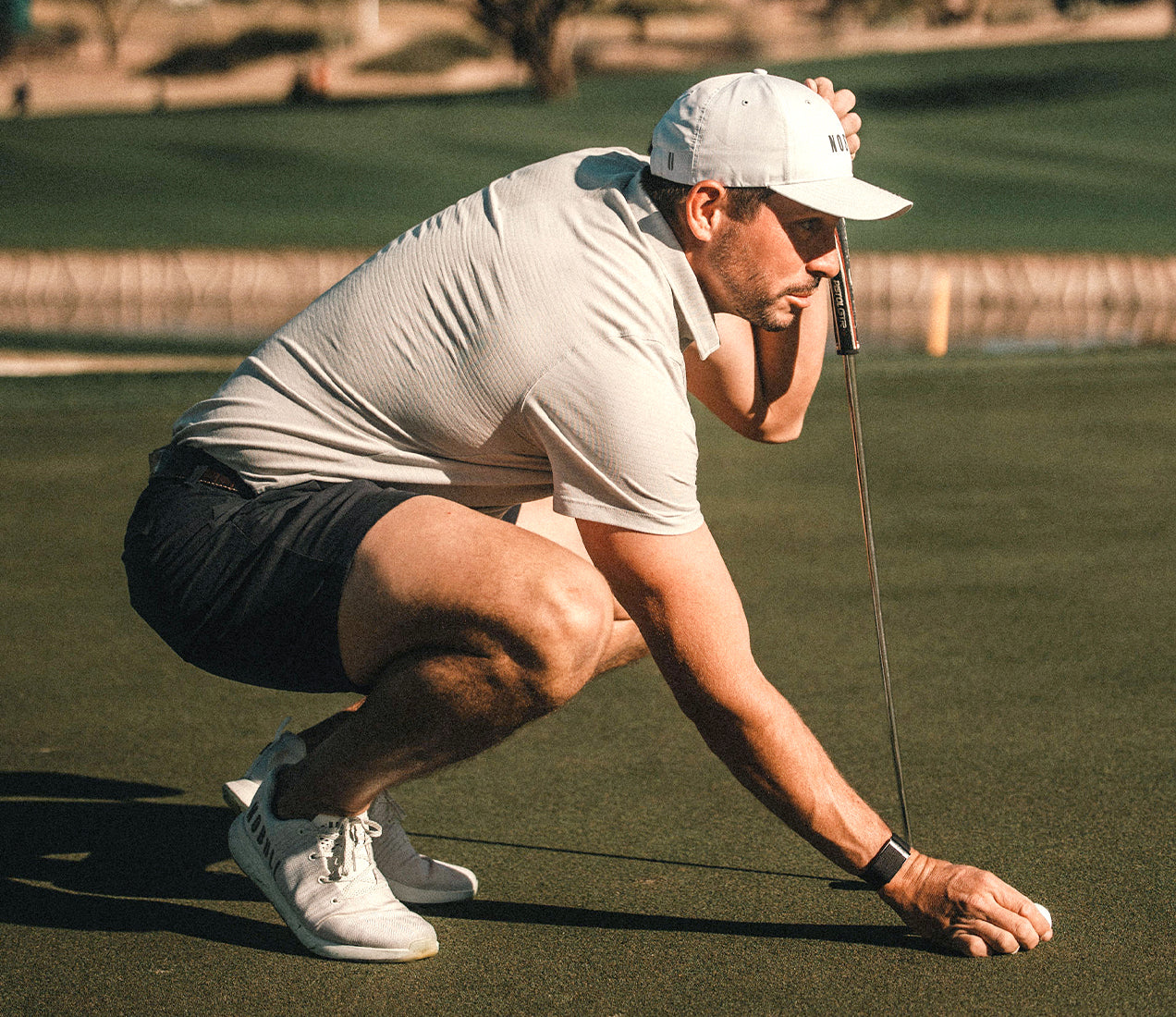Supports focus, mood + mitochondrial energy output
Daily nootropic blend for clarity, productivity + cognitive function
Grass-fed collagen plus FORTIGEL® to support joints + soft tissue
Post-workout formula for faster recovery + less fatigue
Creapure® Creatine to support muscle performance + brain health
Highly absorbable magnesium to support sleep, focus + brain health
As Annie Thorisdottir demonstrated at the 2023 CrossFit Games, competitors must be strong, powerful, and skilled to be crowned the Fittest on Earth. Whether you plan to compete in the Open, or just crush the next WOD at your local CrossFit box, you need to dial in your nutrition. Eating clean and counting your macros is a good start, but sometimes diet alone isn’t going to cut it. Here’s a guide to the supplements that can help fuel your performance and improve your recovery—and how you can fit them into your daily routine.
Fire Up Your Focus
Unless you’re a professional CrossFit athlete, it’s likely that your workout is merely one small part of a hectic day. To be your best physically, cognitively, and emotionally, you’re going to need something to kickstart your morning routine. Sure, a double espresso is a good start, but what about when the caffeine buzz fades?
Another useful addition to your morning routine is a nootropic supplement. While it’s your body that has to get out of bed and take you to whatever challenges await, it’s your brain that determines how alert and attentive you’ll be once you start checking items off your to-do list. The catalysts for this are your neurotransmitters. While some of these are always present, there are ways to elevate their production. These include getting outside in the sunshine, eating a breakfast that’s high in fat and protein, and fitting in morning movement (maybe that 5.30 a.m. WOD isn’t such a bad idea after all).
Certain micronutrients can also shift your mind into high gear. A study published in Food and Nutrition Sciences concluded that taking cognizin citicoline daily helped participants concentrate more intently for longer [1]. A review of four previous trials found that Acetyl L-Carnitine, which has also been found to boost endurance during longer training sessions, increases production of dopamine and acetylcholine, two neurotransmitters crucial for high cognitive function [2].
Taking two capsules of Brain Drive in the morning will give you a therapeutic dose of all these ingredients plus four B vitamins that are essential to mental performance in a formula that won’t make you feel jittery or anxious [3].
Upgrade Your Pre-Workout Nutrition
Before you tackle whatever AMRAP, metcon, or other WOD your coach has posted on the whiteboard, what do you do to fuel up? Maybe you eat a snack that combines carbs, fat, and protein, like a banana and handful of almonds, drink more coffee, or take a pre-workout blend of amino acids. All three can be beneficial, but you should also consider what you can do to safeguard your joint health.
Until a few years ago, it used to be only older athletes who thought about their joint function, or those who were rehabbing an injury or bouncing back from surgery. But more recently, researchers have found that your body’s ability to produce and synthesize collagen starts to slide in your mid-20s. As a result, you might start to experience more soreness, less stability, and even deterioration in your cartilage and other connective tissues.
Scientists from the University of California, Davis and Australia found that skipping rope for six minutes leads to a two-fold increase in collagen production [4]. But before you begin all those double-unders, you should consider taking a supplement like Collagen Peptides, as the researchers also found that the combination of collagen and Vitamin C 30 minutes before training doubled collagen production again.
Refill the Tank
Paleo and keto diets have become increasingly popular in the CrossFit community of late. But even though both provide plenty of dietary protein, if you’re performing hard WODs more than twice a week, you still might not be getting enough. As a result, you won’t be able to repair the muscle damage that occurs during training, add lean mass, or adapt to the stimuli that your training provides.
A 2018 review released via Frontiers in Nutrition concluded that taking high-quality supplemental protein either side of strength training sessions increased muscle protein synthesis [5]. Another paper published in Medicine & Science in Sports & Exercise found that a blend of protein, creatine, and carbohydrates—as found in Recovery—before and after resistance training increased participants’ hypertrophy (muscle growth) and one-rep max performance in three exercises.
To fully optimize your recovery from CrossFit WODs, you would do well to not only consume at least 20 grams of complete protein within 30 minutes (i.e., one that contains all nine essential amino acids, like Grass-Fed Whey Protein or a plant-based alternative like Essential Plant-Based Protein), but also to top up again a few hours later. A team from the University of Toronto found that participants who drank a protein shake the morning after an evening workout had greater whole body protein balance and performed better in plyometric and strength exercises during their next workout [6].
It’s not just protein levels that you need to pay attention to. Whether you’re facing 400-meter sprints, rowing intervals, or endless thrusters in your next WOD, you’ll need plenty of anaerobic power to make it onto the leaderboard. Tapping into your ATP-PC system taxes your nervous system and drains your phosphate reservoir. The easiest way to refill it is to supplement with creatine monohydrate daily.
A group of French exercise scientists discovered that taking creatine consistently improves performance in upper-body exercises lasting three minutes or less [7]. Creatine might also help you perform better next time there’s a Wattbike component in your workout. A study published in the European Journal of Applied Physiology demonstrated that participants who took it daily put out more power and traveled further in cycling bursts than a placebo group [8]. For best results, mix one scoop (five grams) of Creatine into your daily smoothie.
Sort Out Your Sleep
As important as it is to stick with your workouts, you’re not going to get the results you’re seeking unless you’re also recovering afterward. Practices like mobility, breathwork, and contrast therapy can all assist in this area, but nothing will give you a bigger boost than getting sufficient, high-quality sleep. To help set yourself up to drift off quickly, limit your alcohol consumption to two drinks or less, cut off caffeine earlier in the day, and steer clear of screens at least two hours before hitting the hay. Also try establishing more consistent sleep and wake times (there’s even a setting for this on your iPhone), setting your thermostat between 60 and 65 degrees F, and blocking out all light from your bedroom.
If you implement all of these sleep hygiene strategies and are still having trouble falling and staying asleep, it might be time to try a natural supplement. Magnesium Threonate is arguably one of the most effective minerals for preparing yourself to sleep soundly, with Magtein® being the only form that’s proven to cross the blood-brain barrier [9].
[1] Erin McGlade et al, “Improved Attentional Performance Following Citicoline Administration in Healthy Adult Women,” Food and Nutrition Sciences, April 2012, available online at https://cognizin.com/storage/app/media/pdfs/improve-attention-cognizin.pdf.
[2] Giulia Di Stefano et al, “Acetyl L-carnitine in Painful Peripheral Neuropathy: A Systematic Review,” Journal of Pain Research, April 2019, available online at https://www.ncbi.nlm.nih.gov/pmc/articles/PMC6498091/; Gamze E Orer and Nevin A Guzel, “The Effects of Acute L-carnitine Supplementation on Endurance Performance of Athletes,” Journal of Strength and Conditioning Research, February 28, 2014, available online at https://pubmed.ncbi.nlm.nih.gov/24263659/.
[3] Carlos Alberto Calderón‐Ospina and Mauricio Orlando Nava‐Mesa, “B Vitamins in the Nervous System: Current Knowledge of the Biochemical Modes of Action and Synergies of Thiamine, Pyridoxine, and Cobalamin,” CNS Neuroscience & Therapeutics, February 2019, available online at https://www.ncbi.nlm.nih.gov/pmc/articles/PMC6930825/.
[4] Gregory Shaw et al, “Vitamin C–Enriched Gelatin Supplementation Before Intermittent Activity Augments Collagen Synthesis,” American Journal of Clinical Nutrition, January 2017, available online at https://www.ncbi.nlm.nih.gov/pmc/articles/PMC5183725/.
[5] Harry P. Cintineo et al, “Effects of Protein Supplementation on Performance and Recovery in Resistance and Endurance Training,” Frontiers in Nutrition, September 11, 2018, available online at https://www.ncbi.nlm.nih.gov/pmc/articles/PMC6142015/#B28.
[6] Daniel W.D. West et al, “Whey Protein Supplementation Enhances Whole Body Protein Metabolism and Performance Recovery after Resistance Exercise: A Double-Blind Crossover Study,” Nutrients, July 11, 2017, available online at https://www.ncbi.nlm.nih.gov/pmc/articles/PMC5537849/.
[7] Charlotte Lanhers et al, “Creatine Supplementation and Upper Limb Strength Performance: A Systematic Review and Meta-Analysis,” Sports Medicine, January 2017, available online at https://pubmed.ncbi.nlm.nih.gov/27328852/.
[8] J Wiroth et al, “Effects of Oral Creatine Supplementation on Maximal Pedalling Performance in Older Adults,” European Journal of Applied Physiology, June 2001, available online at https://link.springer.com/article/10.1007/s004210000370.
[9] Mounir N. Ghabriel and Robert Vink, “Magnesium transport across the blood-brain barriers,” University of Adelaide Press (2011).

